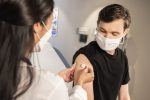Evidence-based practice – EPB – proposes that scientific evidence should precede actions. This makes sense, but you would be surprised to know that not everything follows this line of thought. Those opposed to EBP cite replication crisis where studies are difficult to replicate owing to how they were conducted, so there are calls to apply EBP to the scientific research itself.
As an ongoing study area, you will find enough essay samples on this topic. Those studying to practice medicine have lots to read on this topic since most of the pioneers in the field specialize in medicine. If you need inspiration coming up with evidence based practice essay topics for college essays, you will find several free samples to guide you. You can also ask for help with essay prompts about the practice from the many available experts on the subject.
One of the best things about EBP is that it encourages one to become a life-long student of the values taught in this discipline. Since it suggests that one follows evidence from studies already done, you already know the results will be correct and with a strong basis. While EBP started and focused on medicine, it is now increasingly popular in other areas – management, education, architecture, law and public policy, among others.
Pros of Evidence-Based Practice
- Medical practitioners save time and lives when they rely on treatments prone to work.
- You gather new knowledge while at it.
- It minimizes the use of potentially harmful therapies.
- Fosters critical thinking and lifelong learning.
- Encourages analysis.
These are some of the people famous for advancing the course of evidence-based practice.
Professor Archie Cochrane – Epidemiology
In 1972, Cochrane wrote “Effectiveness and Efficiency: Random Reflections on Health Services,” a book that would build his career and introduce the world to this epidemiology expert. He observed that those in the health sector do not necessarily follow the evidence provided by research and that they could collaborate with researchers to form better alliances. This would result in better patient care since the solutions would be evidence-based.
As an academic giant, Cochrane had spent hours in research in his field, so he knew how these collaborations would benefit all involved. The Cochrane Library is – to date – one of the most resourceful spaces for those in medicine and anyone that would like to know more about evidence-based practice.
Florence Nightingale – Nursing
Nightingale started evidence-based reform even before it became a thing. Before books were written on the topic or any meaningful lesson drawn from it, she had already gathered that washing hands prevented the spread of germs in medical facilities. Her story is that of an ordinary person that became the face of modern nursing, and it has been concluded that she founded the field altogether.
Born to a wealthy family in the 1800s, Nightingale had no business being a working woman. Her role was to grow up, get married to a wealthy man, and raise a family. She had a whole other plan, which started when her parents gave her the education she needed to become the modern-day hero she is today. During the Crimean War, the Lady with the Lamp, as she is fondly known, collected data on infections from the war, the spread of diseases and drew conclusions that included washing hands to prevent or reduce their spread. It wasn’t known as evidence-based practice at the time, but this started something that eventually advanced to what we have today.
Dr. David Sackett – Medicine
You would think that medical practitioners needed no introduction to evidence-based practice of medicine as that is how they work. Well, Sackett would show that only about 15% of treatments in hospitals in the world follow the research done on diseases and epidemics. He made it his life’s work to advocate for practitioners to follow EBP. While at McMaster School of Medicine in Ontario, Canada, he worked at an institution that allowed this culture to thrive. All the exposure acted as a catalyst for his work in epidemiology and the push for EBP.
Gordon Guyatt – Medicine
Guyatt of McMaster University wanted the practitioners at hospitals to treat patients using the evidence provided by studies and research and not what the authorities told them. He found a worthy partner in Sackett who advocated for the same thing, and together they pushed the narrative of their study even further. Together, they did a series of research papers that have been reviewed favorably by their peers. The Rational Clinical Examination required medical history and examinations when diagnosing a patient, while the second, Users’ Guides to the Medical Literature, urged practitioners to stay up to date through continuous learning. These two are quite vital for those doing medical coursework at school.
Conclusion
Pick up a book and read about EBP, and you will realize how much sense it makes. There have been schools of thought proposing that education in classrooms take the same approach as what is expected in medicine, and it makes sense since there are several areas of application. Applying what you are reading at school based on evidence makes it easier to apply in real life.
















